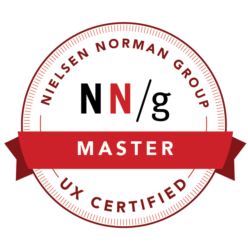Someone recently asked me the question, “Do you think creativity is strictly intuitive and cannot be taught.”
I think that this is a difficult question for people to answer. I think that there are some creative hipsters who would like to think that creativity is something you have to be born with (like a talent), whereas there are others who view creativity as being something different, and applicable to many facets of many different things. A skill can be taught… the example I have seen is that a lot of people think that they can’t draw. This can be attributed to having a bad experience with art, a horrible public school art teacher, being taught that drawing is stupid or non-profitable, or just being told that they are bad at drawing at a young age; however, despite what people think, drawing is a skill just like playing the piano or juggling. It can be taught to anyone. And so, I’m not 100% sure if creativity can be taught necessarily, but I believe that it can definitely be fostered. It can be fostered by connecting and including different people, allowing them to speak and listening to their thoughts and ideas, and permitting people to be open to expressing themselves.
I also believe that the power of being open, transparent, and documenting oneself’s process can lend itself to creativity, and foster creativity in others. I had the benefit of going to HigherEd Web this last year and I got to see Brad Frost‘s presentation on ‘Creative Exhaust’. I would highly recommend watching this Tedx Talk… it is very inspiring and it speaks to the notion of creativity, and how the perception of creativity is changing:
A follow-up question that the same person asked me was, “should a group facilitator also contribute creative ideas.”
I’m not specifically sure if there is a right or wrong answer here. I do agree with the writing of this chapter’s course unit which states that “successful designers are in part ‘creative therapists’ who incorporate the ability to break through a defined mind-set into their method of facilitating in order to extract the intuitive creative traits that their audience may possess.” Accordingly, I personally have been in rooms full of clients and subject matter experts that would have completely sat in silence without some guidance from the facilitator by contributing a creative idea or two to get things started; however, I think the operant word here is ‘guidance’, and much like how I’ve taught over the years as an instructor in fine art and graphic design, I think that a facilitator contributing creative ideas can be a part of guided assistance.
In my opinion, a facilitator’s paramount concern should be not eclipsing ideas, suppressing ideas, or pushing their own agenda of ideas onto a group. This unfortunately happens a lot of time, I’ve personally observed this in my workplace, and coworkers and myself jokingly refer to this as ‘ass-phyxia’ (wherein the most dominant person, or asshole, forces their ideas onto others in the work place). I have worked in environments like this before, I’ve experienced situations like this before to the degree of only the friends of the boss get heard, promoted, and even hired. And so, the people who made up the teams had no diversity at all, no voice, and I even think that subconsciously our hiring process was heuristically biased; this ultimately hurt creativity and morale in the long run, which is I why I looked for employment some place else.

